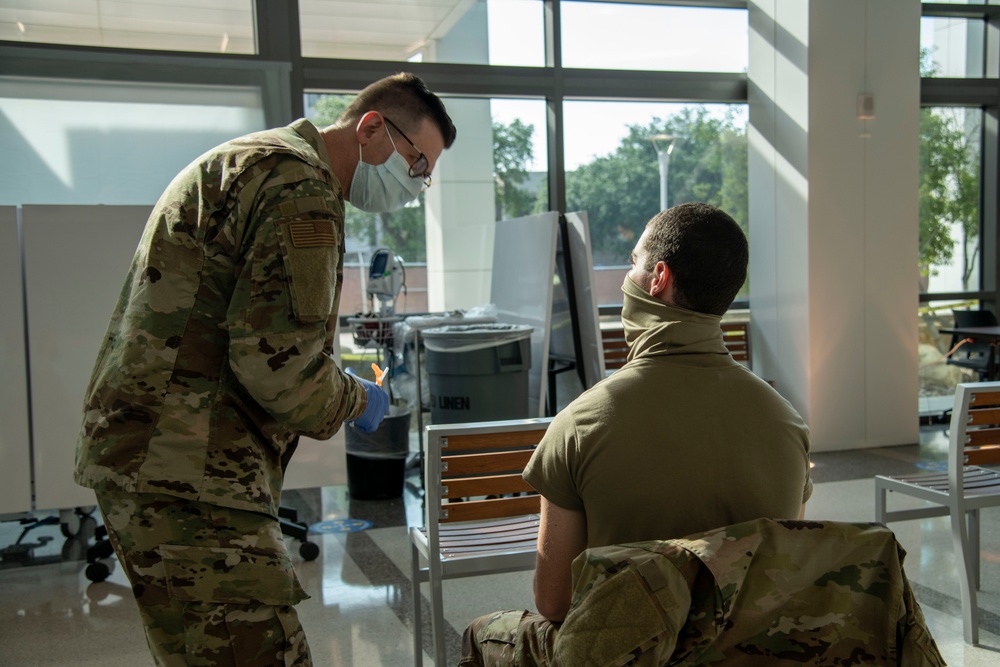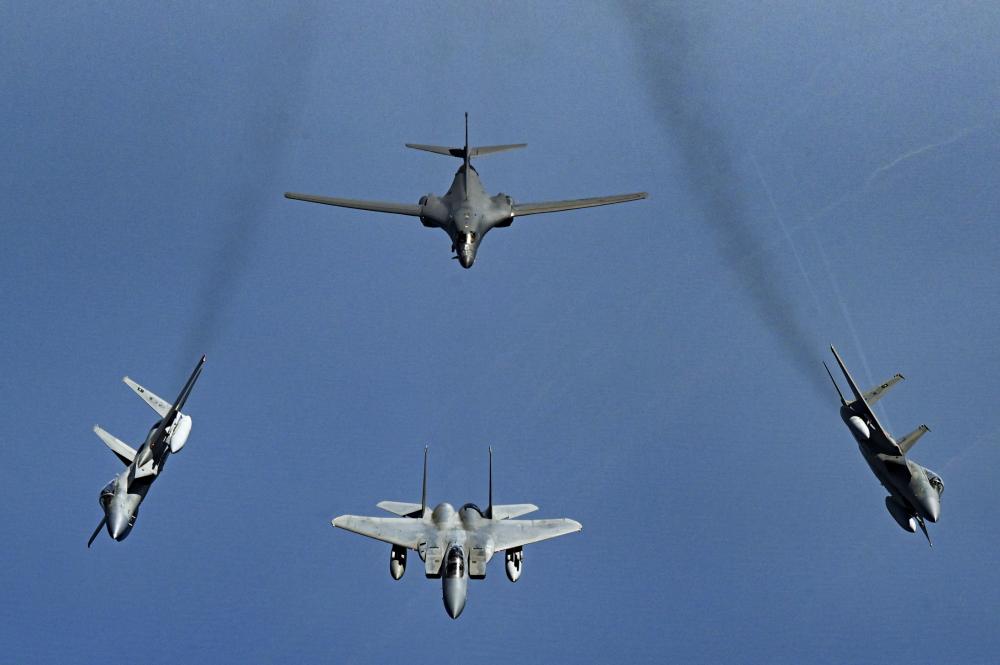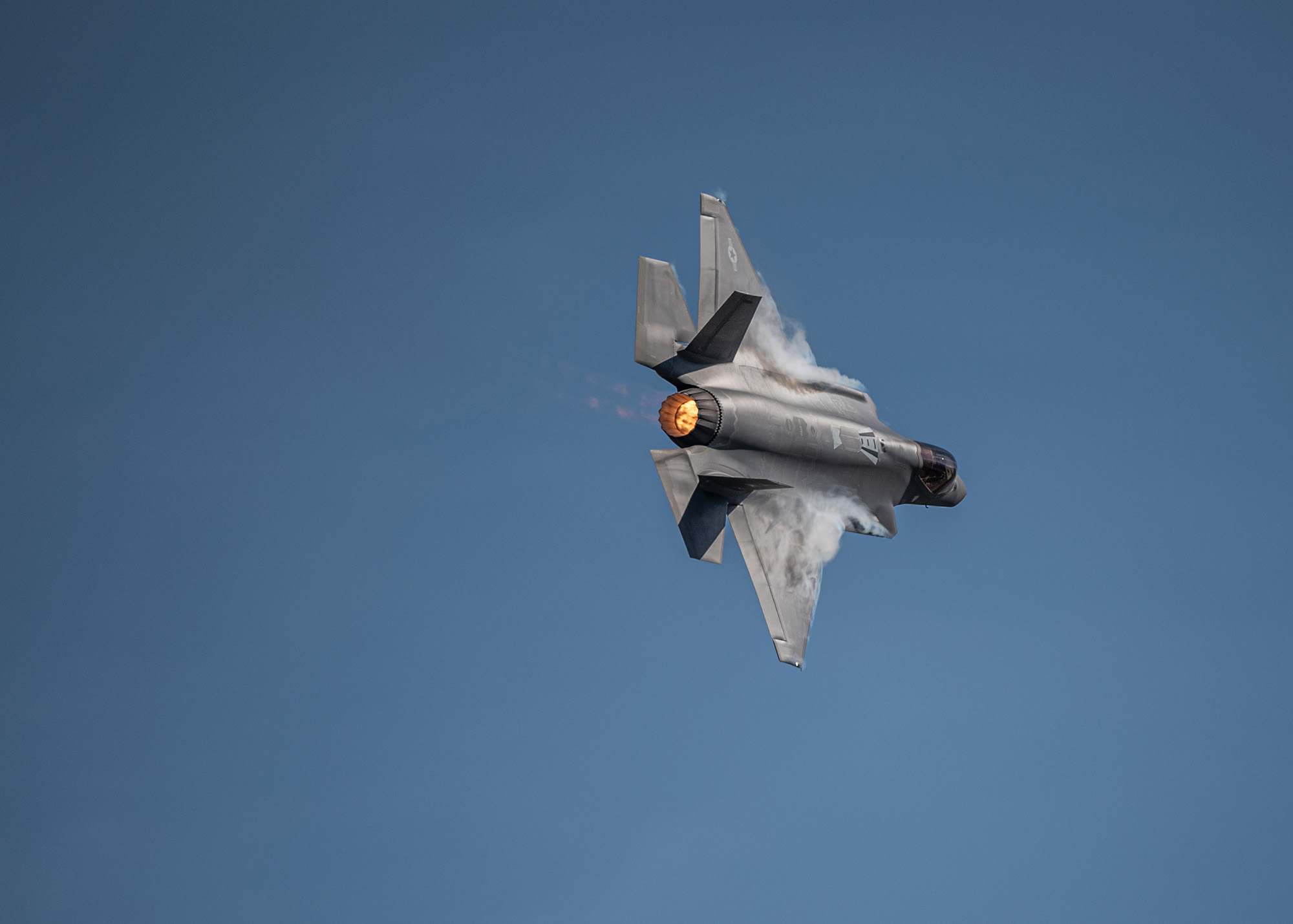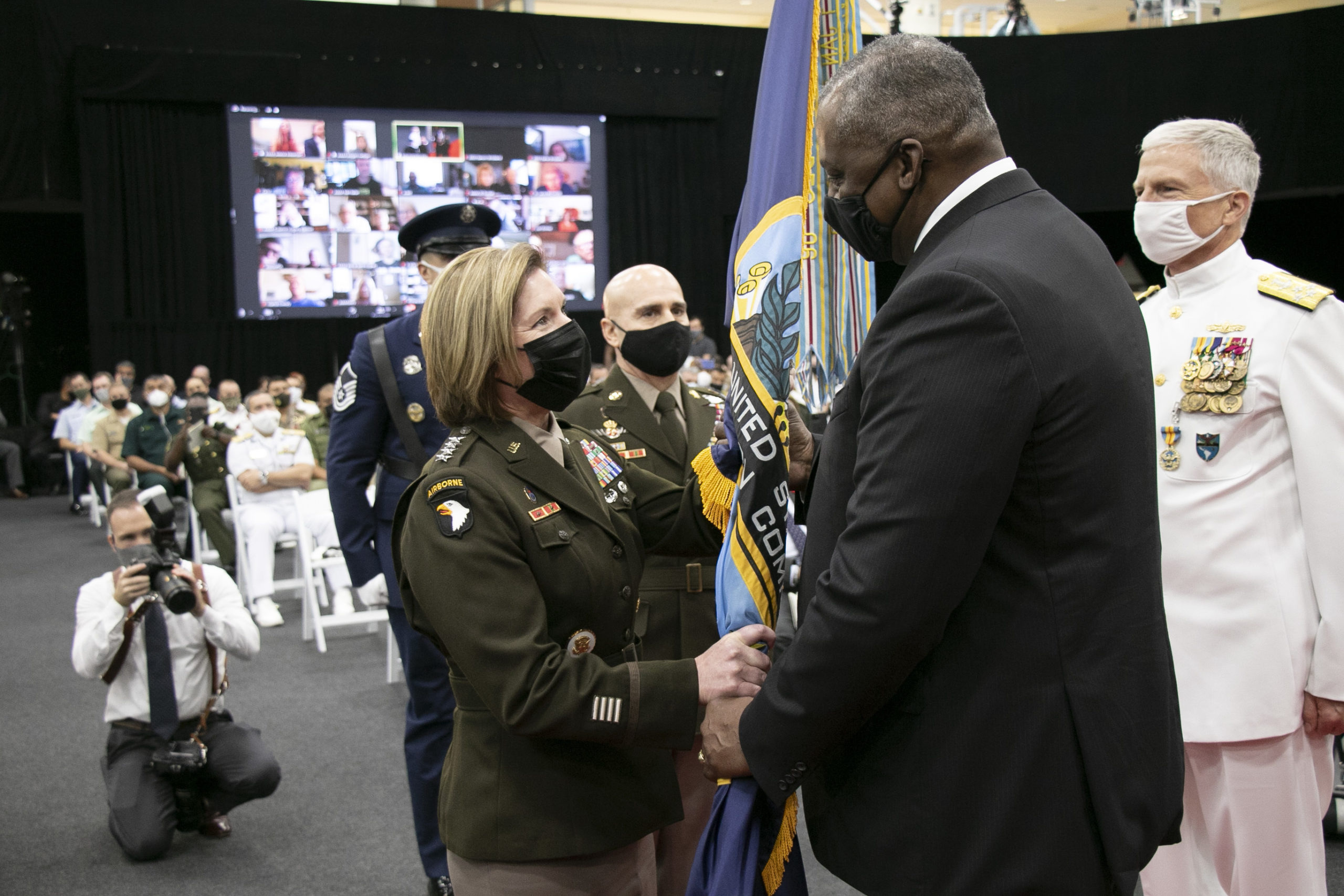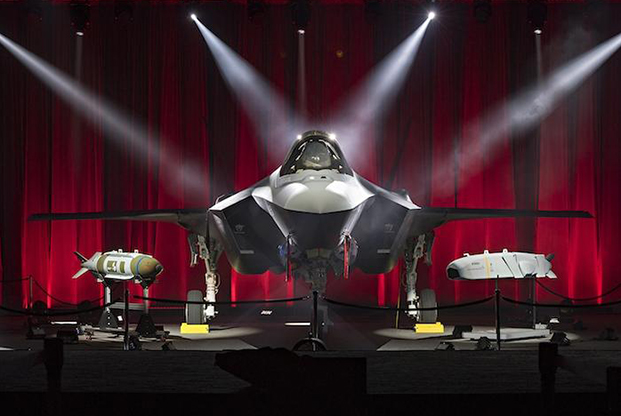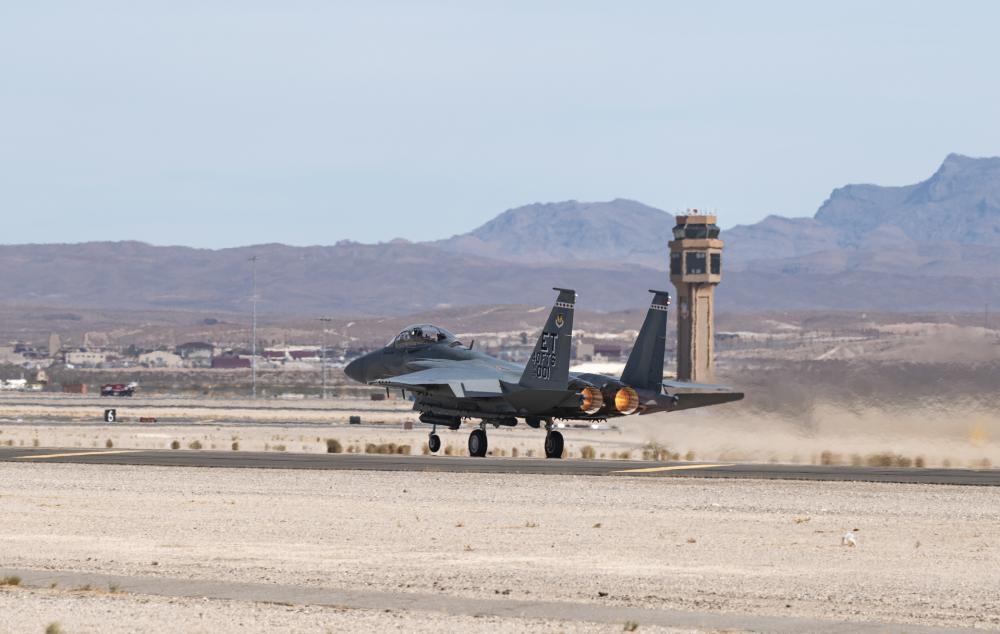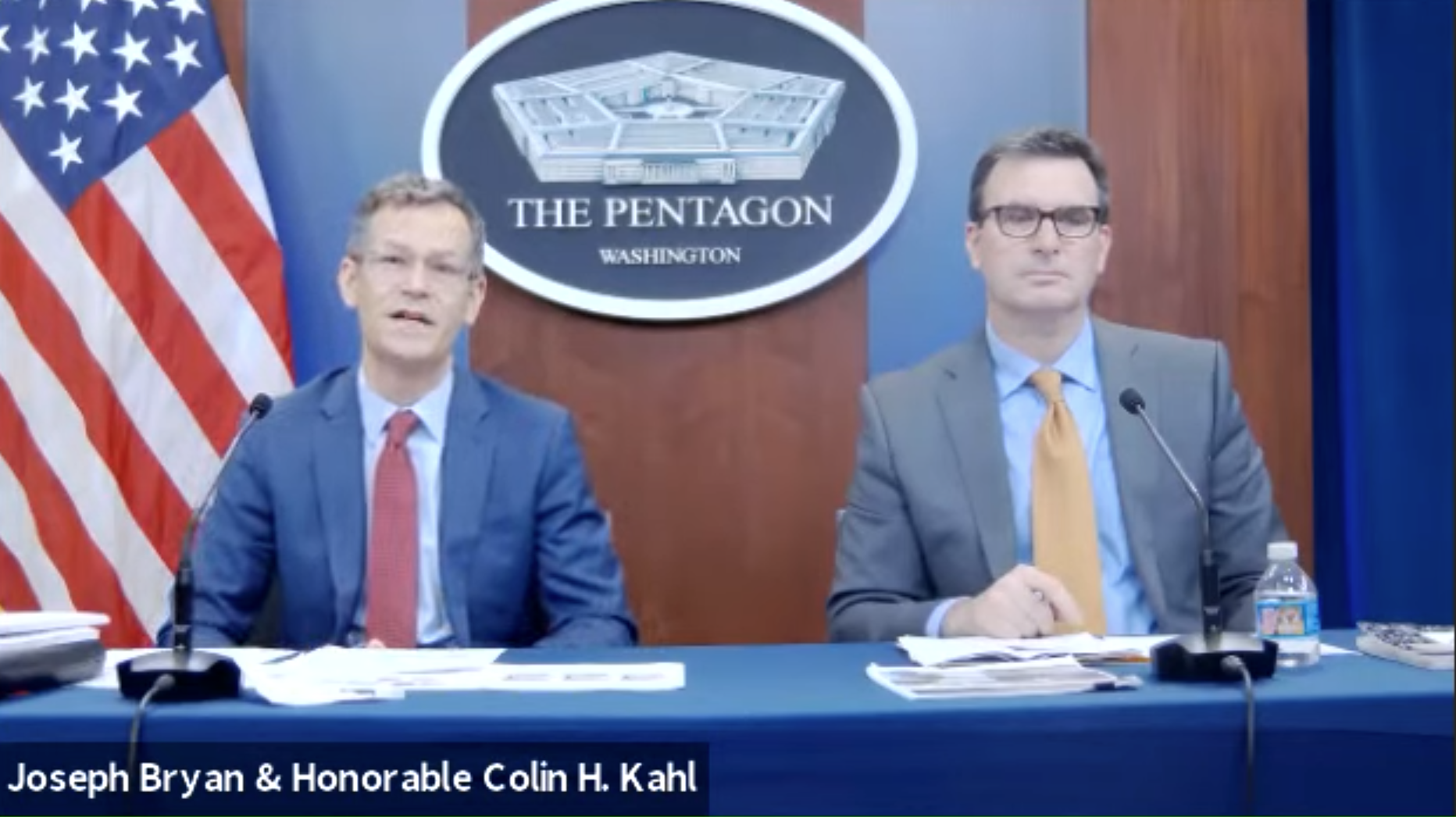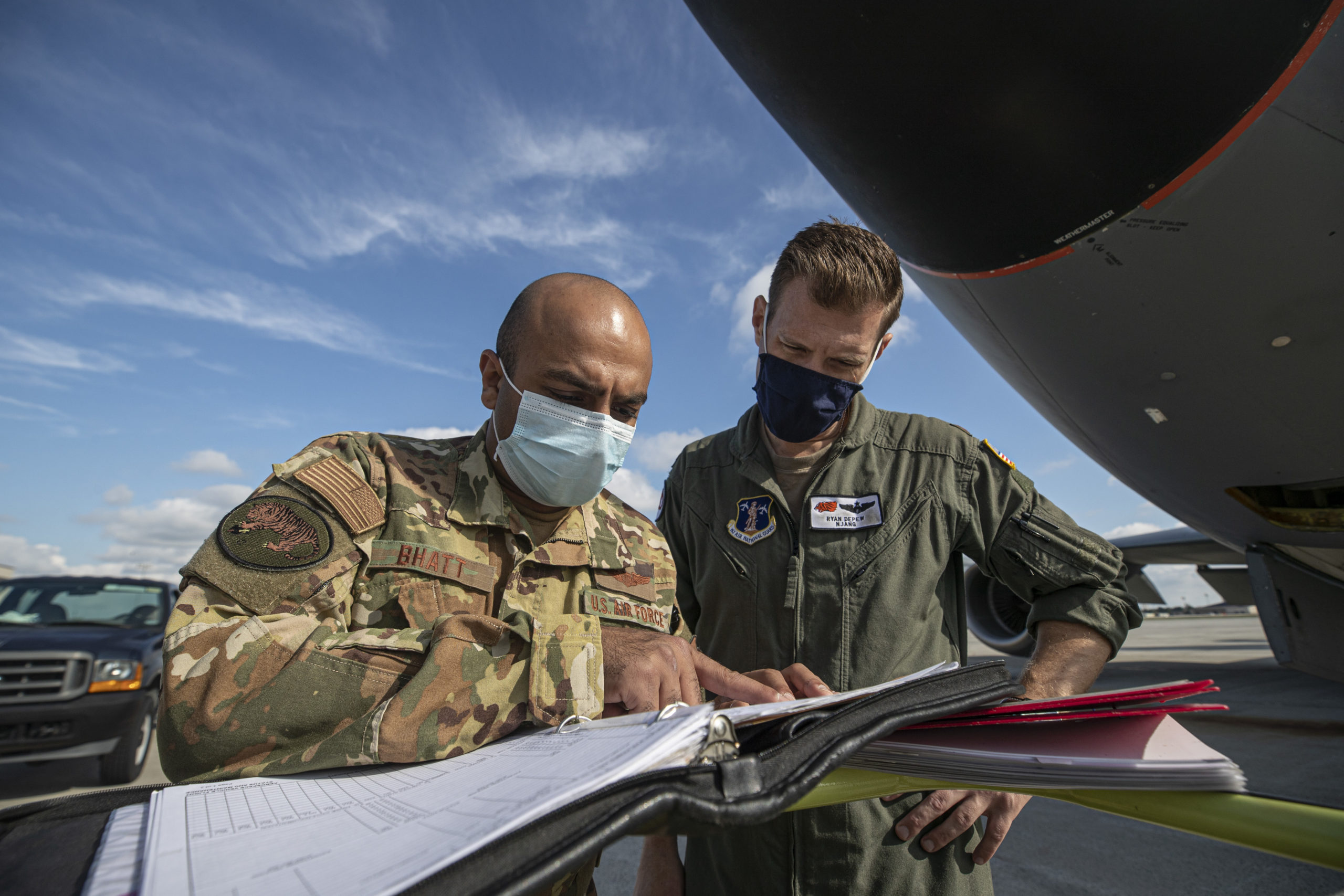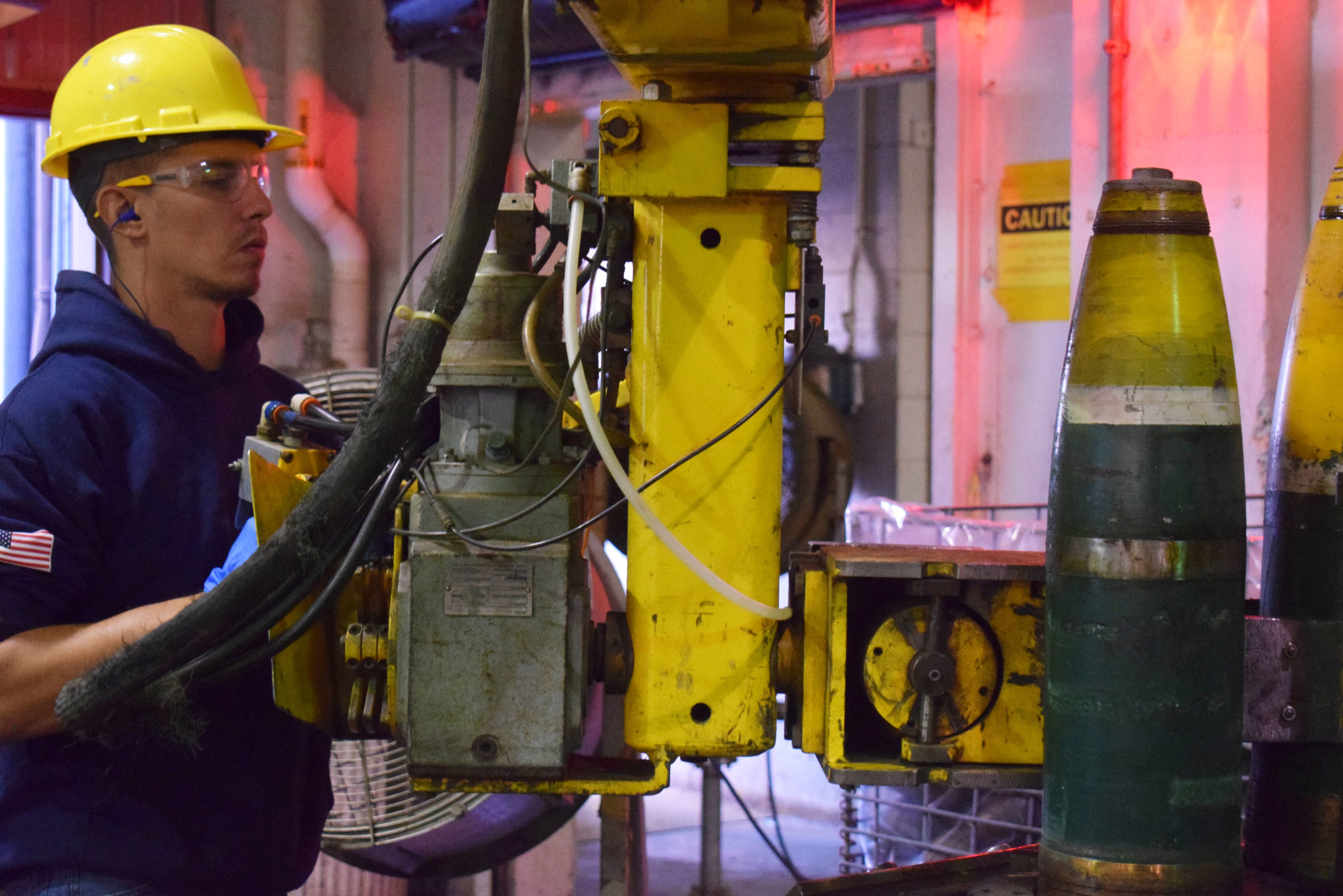The Department of the Air Force is preparing to discipline thousands of Airmen and Guardians who will miss a Nov. 2 deadline for full vaccination against COVID-19.
The Pentagon confirmed that some have qualified for exemptions. Meanwhile, a security expert told Air Force Magazine that the department is likely monitoring for any effects that numerous discharges could have on readiness.
As of Oct. 25, an estimated 10,000 Airmen and Guardians remained unvaccinated, with vaccination levels improving only slightly over the past several weeks, the department said.
While disciplinary action against uniformed service members will not be administered by their commanders until after Nov. 2, the Air Force recently discharged nearly 40 basic military and technical trainees as of Oct. 26 for refusal to vaccinate.
“An Airman or Guardian who is not vaccinated by Nov. 2 will be in violation of a lawful general order and subject to discipline under Article 92, [Uniform Code of Military Justice],” the department told Air Force Magazine in a statement. “Even if a service member has stated they will refuse the vaccination, the order would not be violated until the deadline passes.”
Pentagon Press Secretary John F. Kirby said during a Nov. 1 press conference that some of the 10,000-or-so Airmen and Guardians who have not been vaccinated have already received exemptions.
“The Air Force has received and has granted some exemptions, administratively and from a medical perspective,” Kirby said. “So, some of that number—that is definitely going to be inside approved exemptions.”
While thousands of Airmen potentially face discharge, RAND defense manpower specialist Beth J. Asch told Air Force Magazine the Air Force is ready for shocks like this.
“The Air Force has made this a readiness issue,” Asch said. “From a service perspective, there’s always a focus on deployability.”
Asch said the Air Force has one of the highest retention rates in the military and that typically, fewer positions are available than people willing to re-enlist after the first term. Should Airmen face the most severe punishment of discharge for refusing to vaccinate, Asch believes the Air Force can make the adjustment.
“It’s not trivial, but it’s not like, ‘Oh, my God, the force is going to be hollowed out because of this, either,’” Asch said. “What they might do is just allow more people to stay in than they might usually.”
Kirby clarified that Defense Secretary Lloyd J. Austin III does not want commanders to use the most severe punishment for those who refuse to vaccinate.
“He wants them to execute the mandate with a sense of compassion and understanding,” Kirby said.
The spokesman also declined to say whether Austin considers a non-vaccinated service member deployable.
“The Secretary will delegate that specific decision down to commanders at the appropriate level,” he said in response to a question from Air Force Magazine. “When you say deployable, what does that mean? There are different units—different services define deployments differently—and so he wants to let the services manage that decision-making process for themselves and commanders specifically.”
Since September, recruits have been briefed on the requirement to vaccinate and the consequences of refusal. Beginning Oct. 10, trainees were required to also sign a memorandum stating that they understood the requirement to vaccinate against COVID-19 upon entry into the service. Ninety-nine percent of trainees had arrived fully vaccinated or had started their vaccinations at BMT as of Oct. 19.
“If [trainees] refuse the COVID-19 vaccine, their squadron commander will issue a written order that states they must receive the vaccination. If they refuse a second time, meaning they have now disobeyed an order twice, they will then be processed for an entry-level separation,” Air Force spokesperson Rose Riley said in a statement Nov. 1.
Riley said the department is preparing to release midday Nov. 3 a breakout of Total Force vaccinations and exemptions by type. Department of the Air Force exemptions to vaccination include administrative exemptions, such as a religious exemption, and medical exemptions.
The Air Force declined to elaborate further on the types of exemptions available, the numbers of outstanding applications for exemptions, or any update to the number of vaccinated Airmen and Guardians since the Oct. 25 numbers were released.
Prior to receiving a COVID-19 vaccine, service members have access to health care providers and chaplains to answer their questions or address concerns about the vaccine.
Commanders, meanwhile, “retain the full range of disciplinary options available to them under the UCMJ and must consult with their servicing Staff Judge Advocate for additional guidance on vaccination non-compliance,” an Air Force statement read.
Riley said the range of disciplinary actions extends from verbal counseling to discharge.
She added that the Air Force does not maintain a breakdown of vaccination by Air Force Specialty Code, which would indicate how many specialists are refusing vaccination and could potentially impact readiness.
As of Oct. 25, 96.4 percent of the Air Force was fully or partially vaccinated. Kirby said 97 percent of Active-duty service members across the DOD have received at least one dose of the COVID vaccine, with Sailors at 99 percent, Marines at 93 percent, and Soldiers at 90 percent.
In recent weeks and months, civilian and military Air Force leaders have encouraged service members to vaccinate by the deadline, but a review of the archives of recent weeks of vaccination rates indicates only a minor improvement overall.
Asch said Air Force personnel experts likely will be studying specifically who is refusing to vaccinate.
If, for example, many who refuse have similar time in their careers, a significant pool could be unable to transition to a given rank.
The department has “capability for dealing with this sort of thing. Things happen, and they have to respond,” Asch said. “I have no doubt that they’ll be looking at this closely and figuring out what they can do to make up gaps.”
